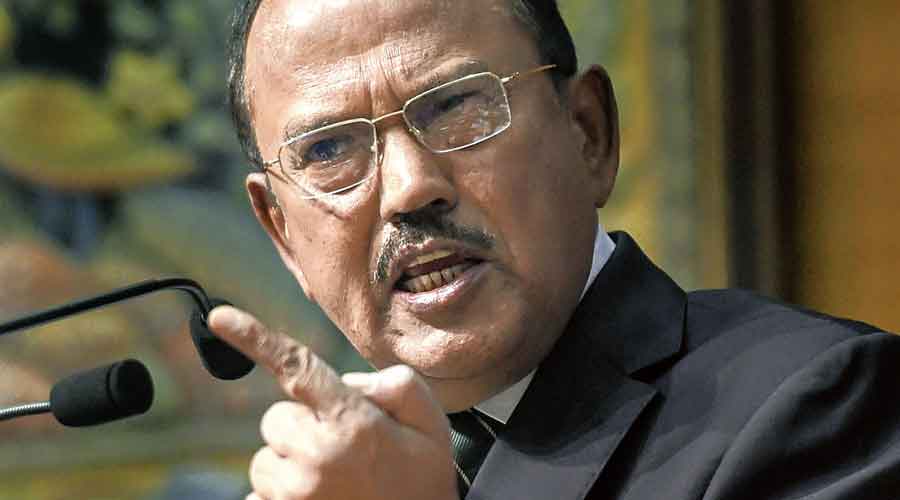India sought to corner Pakistan on terrorism at the Shanghai Cooperation Organisation (SCO) meeting of national security advisers this week by suggesting that the group adopt an action plan against Pakistan-based terror groups.
This was the key thrust of NSA Ajit Doval’s intervention at the meeting in the Tajikistan capital of Dushanbe where he shared the table with his Pakistani counterpart Moeed Yusuf.
Sources said Doval proposed an action plan against the Laskhar-e-Toiba (LeT) and the Jaish-e-Mohammad (JeM) as part of the SCO framework and called for targeted sanctions against UN-designated terrorist individuals and entities.
Whether his suggestion has been taken on board was unclear as the outcome document of the meeting had not been released till late Thursday evening.
Condemning terrorism in all forms and manifestations, Doval is said to have argued that the perpetrators, including those involved in cross-border terror attacks, should be expeditiously brought to justice.
Both LeT and JeM, based in Pakistan, are UN-designated terrorist groups. LeT chief Hafiz Saeed is a UN-designated terrorist.
Doval also stressed the need to monitor new technologies used by terrorists, including drones for smuggling weapons and misuse of the dark web, artificial intelligence, blockchain and social media.
With the US-Nato pullout from Afghanistan drawing near, it is a subject of concern for the SCO — many of the member countries share boundaries with the war-ravaged country.
On Afghanistan, Doval is said to have iterated India’s position on the need to preserve the gains made in the last two decades.
While batting for greater connectivity, Doval underscored that such projects should respect sovereignty and territorial integrity in an oblique reference to New Delhi’s concerns regarding China’s ambitious Belt and Road Initiative that runs through Pakistan-occupied Kashmir.
New Delhi has refused to join the BRI on the ground that it violates India’s sovereignty and territorial integrity.
Compared to last year’s meeting, this edition appears to have gone off without much of a flare-up between India and Pakistan. Doval had walked out of the virtual meeting last year to protest against Yusuf using the new map of Pakistan as his backdrop. India had declared the new map — issued by Pakistan on August 5, 2020, to mark the first anniversary of the removal of Article 370 provisions in Jammu and Kashmir — as fictitious.
The new map shows Gilgit-Baltistan and Kashmir as one territory that has been described as “Indian Illegally Occupied Jammu and Kashmir’”. Earlier, Pakistan used to describe Jammu and Kashmir as “Indian-occupied Kashmir”.
The new map also states that the region is disputed territory, whose “final status is to be decided in line with relevant UNSC resolutions”. Further, the international boundary on the eastern side has been extended up to the undefined frontier.










